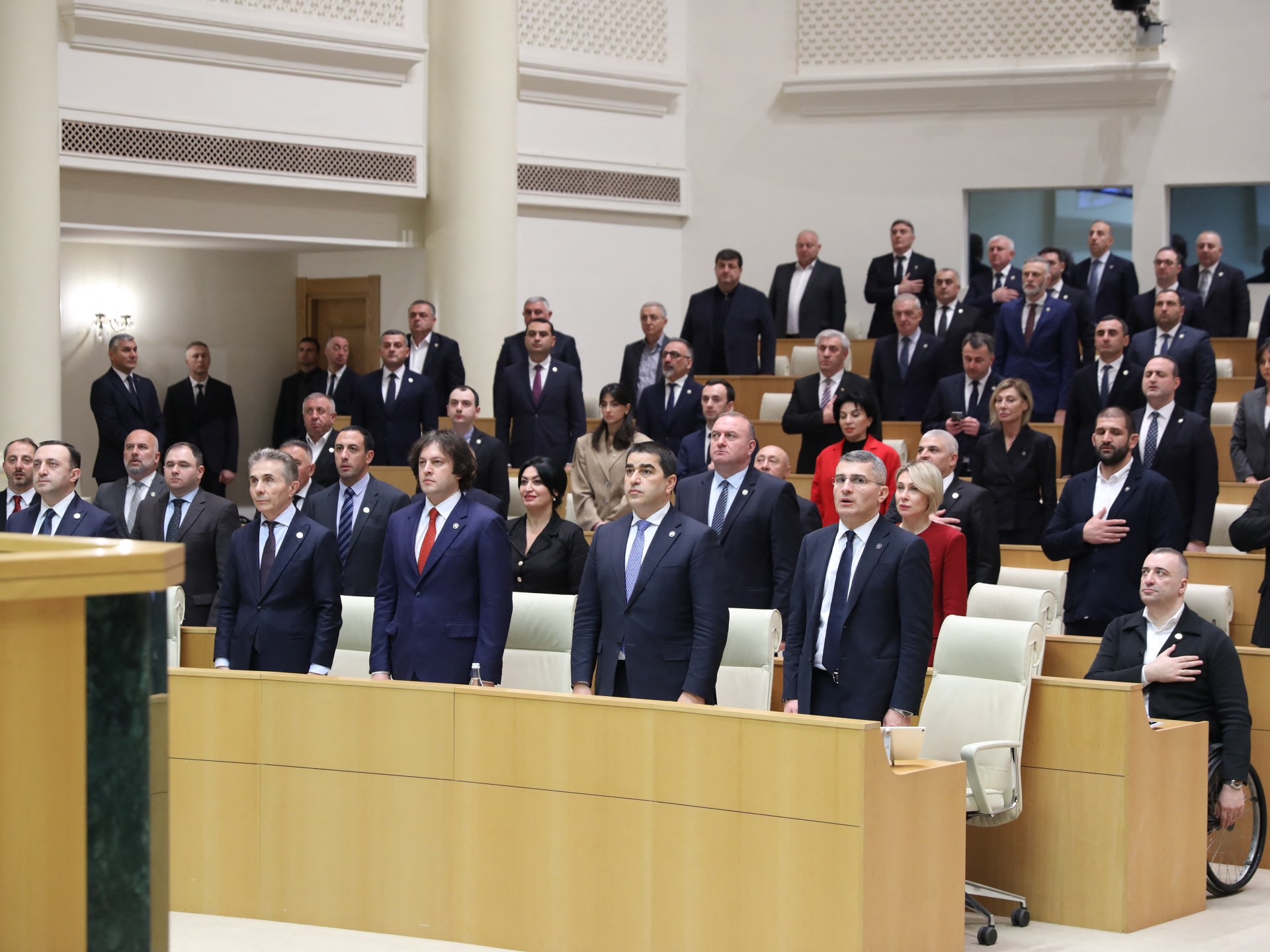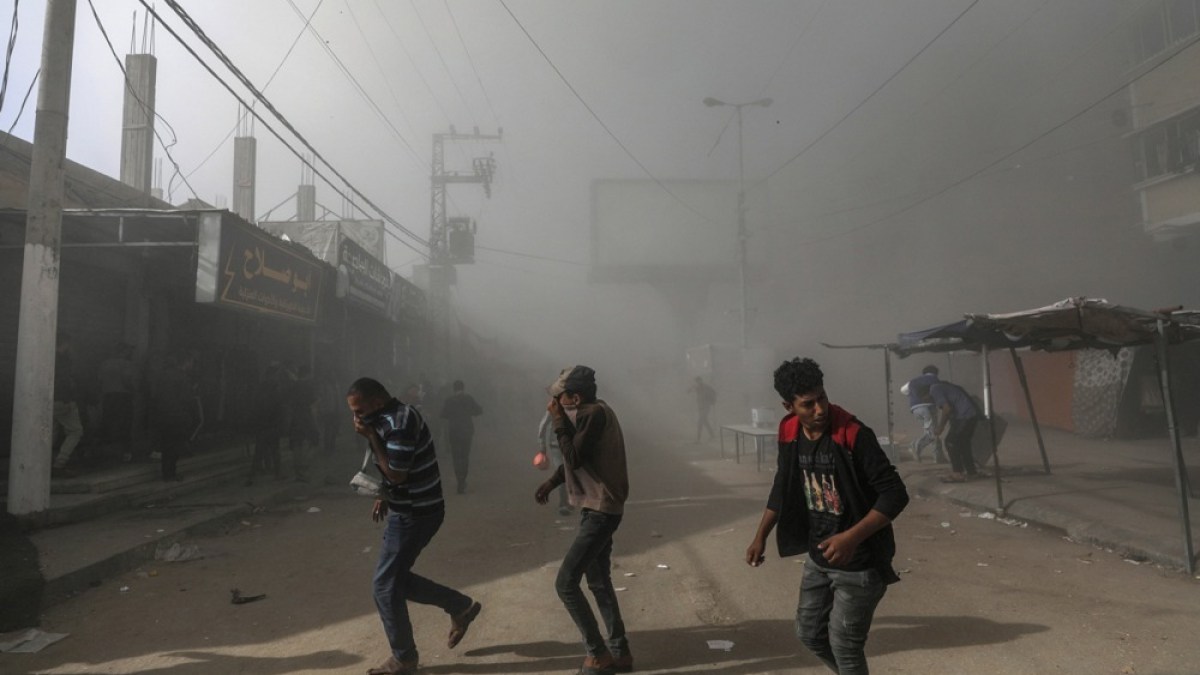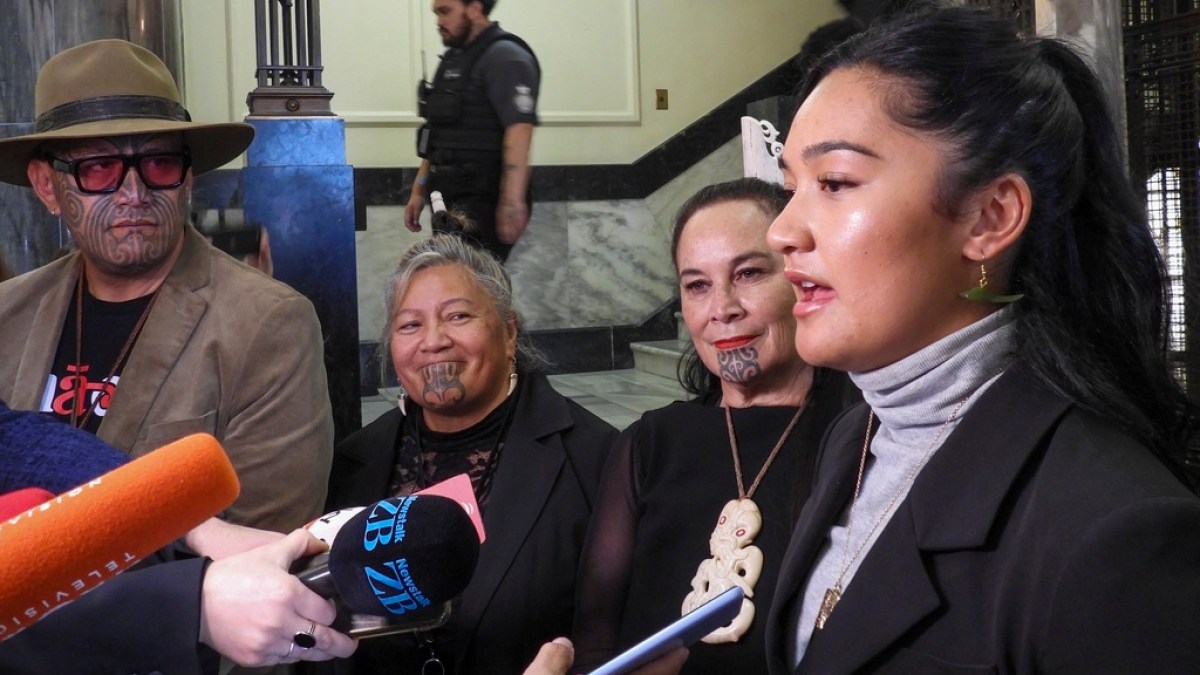

Georgian lawmakers have agreed to select a new president in a parliamentary vote on December 14.
The parliament set the date in a session on Tuesday, amid a boycott by the opposition, which says last month’s elections were rigged. The installation of a new president promises to cement the grip of the ruling Georgian Dream party that was declared victor.
The date was selected under new rules pushed through by Georgian Dream in 2017, which are criticised as designed to ensure a loyalist’s victory. For the first time, the president will be chosen by an electoral college instead of a popular vote.
The new leader’s inauguration for a five-year term, instead of the current six years, will take place on December 29, according to the parliamentary decree agreed on Tuesday.
Contested election
Antigovernment protests called by incumbent President Salome Zourabichvili persist in Tbilisi with opposition parties continuing to dispute the results of the October 26 parliamentary elections. The pro-Western head of state’s six-year term ends next month.
Opposition lawmakers have refused to take their seats in the new parliament, which convened for its first session on Monday. Zourabichvili has declared the new legislature “unconstitutional” and is seeking to annul the election results.
European election observers said the balloting took place in a “divisive” atmosphere marked by instances of bribery, double voting and violence.
According to the official results, Georgian Dream took 54 percent of the vote, handing it a fifth term since 2012. The party denies allegations of electoral fraud.
New rules
Under the new process, a 300-member electoral college made up of all 150 MPs and representatives from local and regional authorities will choose the new president in an open ballot and without prior debate in the parliamentary chamber. The role of president is largely ceremonial but has influence, especially regarding Georgia’s international image.
Candidates must be nominated by at least 30 members of the selection body, which Georgian Dream will have control over because it holds a majority both in the national parliament and in regional and local councils.
To win in the first round, a candidate must secure two-thirds of the votes. If this threshold is not met, a second round will be held on the same day in which a simple majority is enough.
The powers of the next president will also be reduced under the constitutional reform.
The president will remain the head of state, the commander-in-chief and Georgia’s official representative on the world stage but will no longer be entitled to conduct negotiations with foreign countries or declare martial law without the prime minister’s approval.
Constitutional law experts said decisions taken by the new parliament are invalid because there has been no ruling yet on Zourabichvili’s legal effort to have the results of the October elections annulled.
Many Georgians viewed the election as a referendum on the country’s bid to join the European Union.
Critics have accused Georgian Dream – established by Bidzina Ivanishvili, a billionaire who made his fortune in Russia – of becoming increasingly authoritarian and tilted towards Moscow.
Related News

US state of Alabama carries out third execution by nitrogen gas

Dozens killed as Israel attacks central Beirut, hospital and mosque in Gaza

Thousands march on New Zealand capital against Indigenous treaty overhaul


